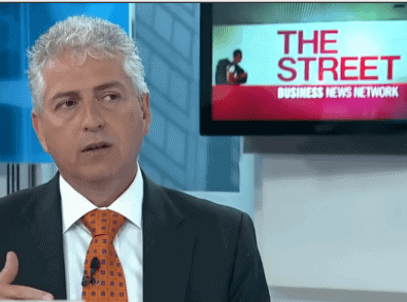
 Defense stocks have been a hit under US President Donald Trump’s tenure but having the fate of Lockheed Martin (Lockheed Martin Stock Quote, Chart, News NYSE:LMT) tied too closely to US sales could be a problem, says money manager John O’Connell of Davis Rea Investment Counsel, who likes Raytheon (Raytheon Stock Quote, Chart, News NYSE:RTN) better.
Defense stocks have been a hit under US President Donald Trump’s tenure but having the fate of Lockheed Martin (Lockheed Martin Stock Quote, Chart, News NYSE:LMT) tied too closely to US sales could be a problem, says money manager John O’Connell of Davis Rea Investment Counsel, who likes Raytheon (Raytheon Stock Quote, Chart, News NYSE:RTN) better.
The top money making defense company in the world, Lockheed Martin had a brilliant half-decade, starting in early 2013 when the stock was hovering around $100 per share. Then, stronger growth projections led to a spike in share price which barely let up until 2018. That year, LMT faltered, with the blame falling on the US mid-term elections and fears that a change in the balance of power in Congress could hamper government contracts. All told, Lockheed Martin dropped almost 20 per cent in 2018.
But the company pulled it together in 2019, coming up with quarterly earnings beats and raising its full-year guidance at the midway point. LMT saw growth across all its segments — aeronautics, missiles and fire control, rotary and missions systems and space. In response, the stock climbed 49 per cent in 2019 and looks ready for more, having already gained nine per cent in January.
But Lockheed’s gains have been the case across the defense sector, as ramped up US spending has combined with uncertainty and destabilization on the international front to make for heady times in defense. The iShares US Aerospace & Defense ETF has been on a run mirroring LMT’s, gaining over 70 per cent since the election of Trump in 2016.
And more could be on the horizon, as the government approved in December a defense budget increase for 2020, signing on to $738 billion for fiscal 2020, up from $717 billion in 2019. Notably, the items list for 2020 includes $12.2 billion for 90 f-35 Joint Strike Fighters, Lockheed Martin’s fifth-generation stealth jet. Last October, the Pentagon announced a new $34-billion contract with LMT for 478 aircraft, the largest contract to date for Lockheed’s fighter program.
All those tailwinds should make for investor optimism about Lockheed Martin, but O’Connell says that volatility in the US is too great.
“The defense industry has performed well over the last year and Lockheed Martin has been part of that progression,” said O’Connell, chairman and CEO at Davis Rea, who spoke with BNN Bloomberg on Monday. “The dilemma with Lockheed Martin is their fighter jet program and what worries me also is the belligerence that the US government is taking toward its trading partners.”
“It worries me about competing planes from European manufacturers. And there have been huge cost overruns from Lockheed Martin’s F35 program, so I lean more heavily towards Raytheon,” said O’Connell.
Ahead of Lockheed Martin’s fiscal fourth quarter earnings coming next week, the company last reported in October, where profits rose 9.2 per cent over its third quarter on better sales numbers for its fighter jets. The company’s Q3 featured EPS of $5.66 per share, better than the consensus estimate of $5.03 per share, on net saes of $15.17 billion, also above the consensus $14.98 billion. (All figures in US dollars.)
Leave a Reply
You must be logged in to post a comment.




 Share
Share Tweet
Tweet Share
Share




Comment